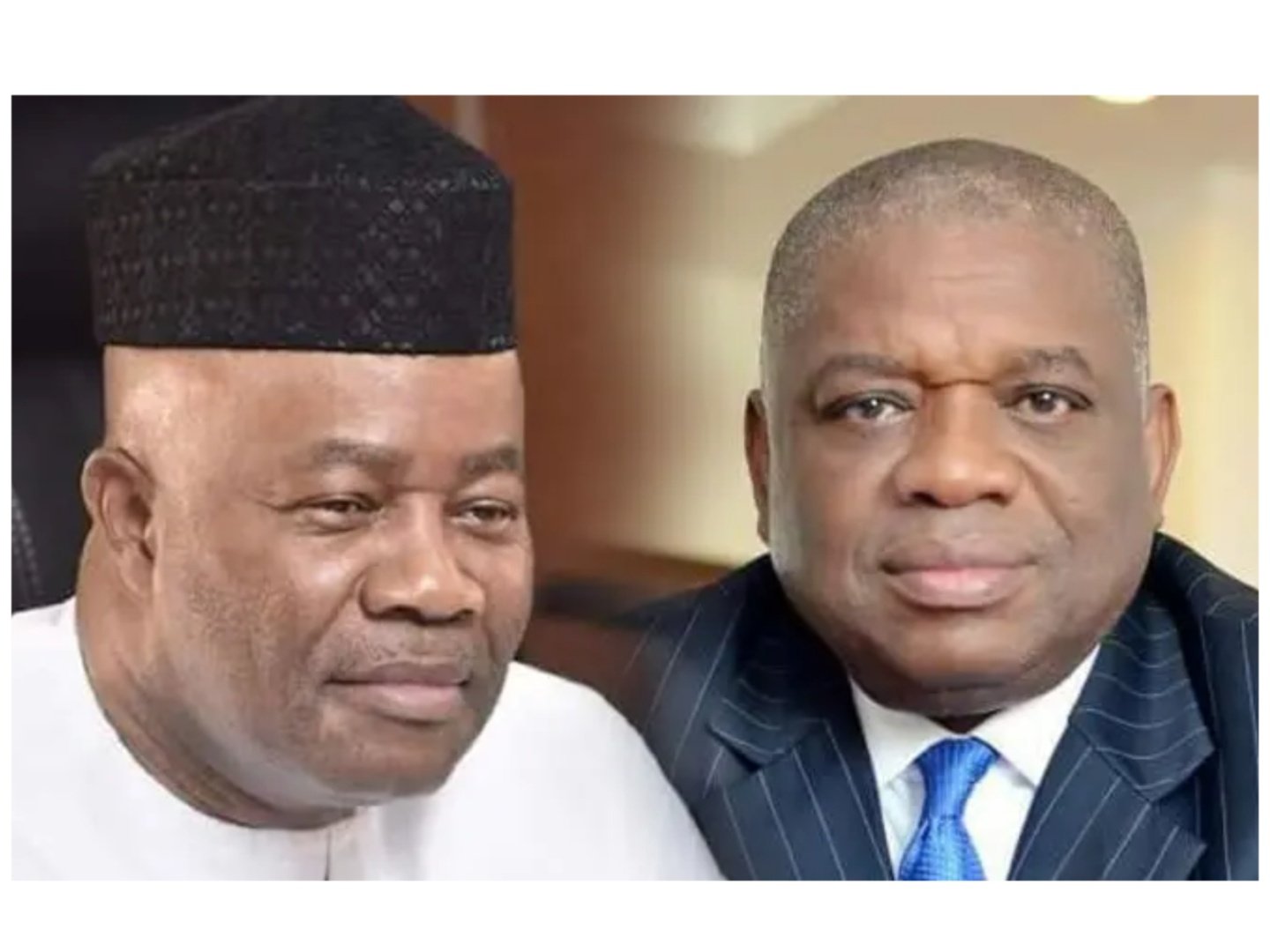News
Senate President race: Akpabio squares up against Kalu

The battle for the number three citizen, the Senate Presidency of the 10th Senate now appears to be between the Southeast and the Southsouth geopolitical zones.
Over the past couple of days, the call for the Senate President to be a Christian from either the Southeast or Southsouth has gained significant momentum.
This latest development has increased the chances of Sen Orji Uzor Kalu and Sen Godswill Akpabio, who are from the Southeast and Southsouth zones, respectively.
Dailypost looks at the chances of the two aspirants and the intrigue within the ruling party.
The National Working Committee of the All Progressives Congress, APC, and the president-elect, Bola Tinubu are expected to decide on the zoning of the offices. There have been countless meetings at the residence of the president-elect on the zoning of the offices.
It was learnt that the deliberations have been divided between those calling for the inclusion of the Southeast and those calling for reward based on the outcome of the presidential election.
Those opposed to Kalu argued that his inability to deliver votes for Tinubu during the presidential election should count against him.
Kalu polled 30,805 votes to win the Abia North-senatorial district election; however, Tinubu only managed to poll 8,914 votes in the entire Abia State.
Akpabio on the other hand delivered 132,683 votes, a tally that is more than the 115,401 votes he garnered in his senatorial district election.
Some loyalists also pointed to the primary election where Kalu backed Senate President Ahmad Lawan for the APC ticket, while Akpabio was the first presidential aspirant to step down and endorsed Tinubu during the primary election in June 2022.
These are the two main talking points that have shaped the conversation on the choice of the Senate President.
It would be recalled that the APC Governors recently sent a memo to the president-elect on the appropriate zoning of the offices. The governors stated that contribution to the presidential election must be a major factor in zoning.
In the memo, governors faulted the voting pattern of the southeast, noting that the region exhibited “exclusionary electoral conduct”.
“The South-east contributed the least to Asiwaju’s victory, consistently exhibited the most exclusionary electoral conduct since the advent of the Fourth Republic, and yet also feels entitled to the Senate Presidency,” it reads.
The APC governors went further to state there is a need to signal to the South-east in order to ensure “adequate deterrence for exclusionary electoral conduct.”
Many believe that the language of the Governors shows that they are leaning toward the South-south zone.
If the South-east loses out in the race for the Senate President, there is a possibility that the region will equally lose out on the Speaker and the Deputy Senate President due to zoning.
However, DAILY POST learnt that other voices are pushing for the Senate President to be zoned to the South without micro-zoning and that the Speaker should be zoned to the North without micro-zoning to any region.
Head to head
Both Akpabio and Kalu have corruption allegations they are carrying. The former is facing an investigation concerning over N108 billion alleged misappropriation during his time in office.
Also, as the Minister of Niger Delta Affairs, he has been linked to the alleged corruption that happened in the Niger Delta Development Commission. It would be recalled that Akpabio was accused of corruption by the former Managing Director of NDDC, Joi Nunieh.
Akpabio subsequently appeared before the House during the N81 billion probe of the NDDC by the House Committee on Niger Delta. The probe produced the infamous “Off your mic” moment.
Meanwhile, Kalu was sentenced to 12 years imprisonment on 5 December 2019. The judgement was subsequently voided by the Supreme Court in May 2020 and ordered a retrial.
After the pronouncement, Kalu was subsequently released from prison and he returned to the Senate.
If the race is thrown open, both aspirants will have to rely on their connections in their previous party, the PDP for support.
In the last 72 hours, the two have recently met with the president-elect separately. But they must show the capacity to reach out to senators outside their party. The minority parties in the Senate have a combined strength of 50 lawmakers.
The recent visit of Atiku Abubakar to the House of Kalu has already set tongues wagging within the APC. Although Atiku was there to visit the former Abia Governor on the death of his wife, the timing of the visit is raising eyebrows.
The PDP is divided between Atiku and G5 camps; however, going by the outcome of the 2023 election, the G5 lost several seats in the Senate race. PDP lost ground in Abia, Enugu, Oyo and Benue.
On the other hand, PDP has significantly increased its strength in the North— Kaduna, Kebbi, Gombe, Bauchi and Plateau States now have a significant number of senators. Support from Atiku could change the dynamic of the race in favour of Kalu.
With Aminu Tambuwal in the Senate, the PDP senators-elect will play a significant role in deciding where the pendulum swings with their 36 seats in the House.
Akpabio’s supremacy battle with PDP in Akwa-Ibom State could count against him, as the outgoing governor may be wary of empowering his rival.
However, the opportunity to have the Senate Presidency may override the local squabble.
The race is no doubt expected to be tough between the two Senators.
Source: DAILYPOST

